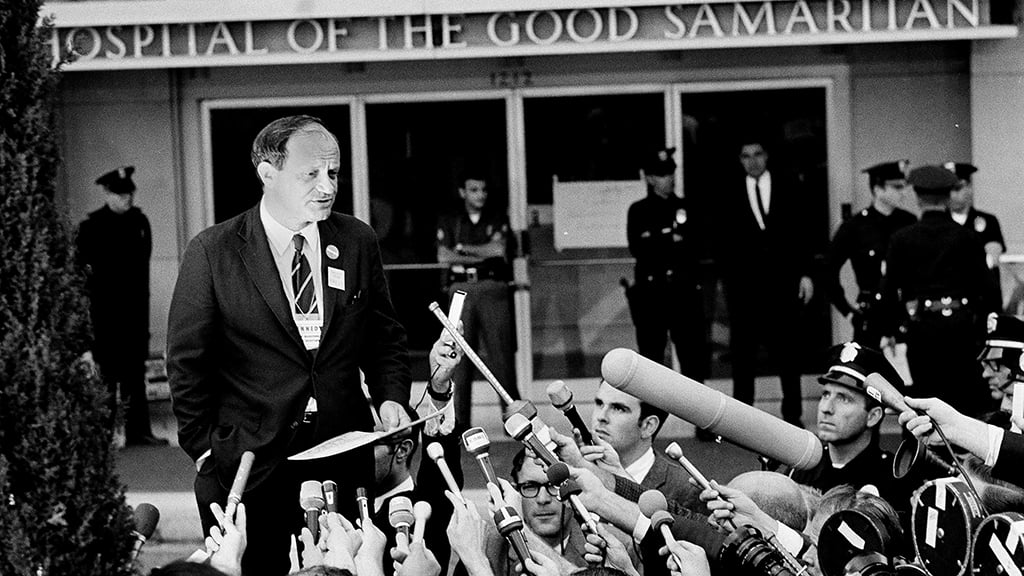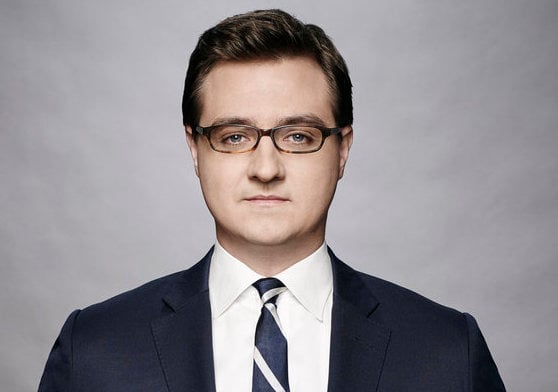Hollywood beckons Washington’s youth as it does any town’s: Sandra Bullock (Arlington), Taraji P. Henson (Oxon Hill), Olivia Wilde (Georgetown). Even Dina Merrill, daughter of heiress Marjorie Merriweather Post, sought fame in LA—and she had everything. Rarer are those who decamped from Beverly Hills to DC, a city with more humidity and paler skin. George Stevens Jr., son of the great Hollywood director, is an exception. From his Georgetown home, he helped found the American Film Institute and was the longtime producer of the Kennedy Center Honors.
Among the rarest of all may be Frank Mankiewicz, who, before he died in 2014 at age 90, left us So As I Was Saying…, his new memoir. A veteran of Democratic politics, Mankiewicz was a man about town: If you lived in Kalorama, you probably saw him swanning out of the stately Wyoming building with his second wife, novelist Patricia O’Brien. If you’re under 50, you may never have heard of him, but should have—not only for his remembrance of a Washington and Hollywood that have largely disappeared but for his life lessons. How do you thrive when you’re from a famous family? How do you keep nostalgia from becoming regret?
Mankiewicz’s father, Herman, was the New Yorker’s first drama critic, who joined Dorothy Parker’s sparring, witty, booze-fueled salon at New York’s Algonquin Hotel in the 1920s. Before the stock-market crash, “Mank” made his way to the West Coast, where he became an impossibly successful screenwriter, often hauling in more than did the actors who starred in the pictures he penned. When the Depression hit, the Mankiewiczes joked, it meant the pool man came once a week instead of twice.
It’s hard to fathom at first how Herman Mankiewicz could think himself a hack and consider movies crap, or why his son would flee Los Angeles. Herman’s boozing didn’t help—nor, perhaps, did the competition of a screenwriting brother, Joseph (All About Eve). Even Herman’s triumph, the script for Citizen Kane, became an open sore within the family after director and star Orson Welles insisted on a coauthor credit, despite the fact that the story was Herman’s and that the famed MacGuffin, Rosebud, was based on a stolen childhood bike of Herman’s.
These discontents spurred Frank Mankiewicz to leave the family’s hallowed name behind to make his own: “My father hated the movies, even though they made him rich at a young age, and passed that hatred on to me, in that I never considered writing for Hollywood; instead, I went to Washington, D.C., which offers its own form of theater.”
Mankiewicz’s up-from-Beverly-Hills trajectory contains some wonderful cameos. As an undergrad at UCLA, he annoyed his classmate and Watergate villain-to-be H.R. Haldeman by publishing a story in the Daily Bruin about the right-winger’s frat kicking puppies as part of an initiation—a scoop that Mankiewicz is convinced helped land him on President Nixon’s enemies list.
If that wasn’t it, he would surely have earned Nixon’s wrath by virtue of his leading role in JFK’s Peace Corps or his work as Bobby Kennedy’s press secretary. Mankiewicz was a regular at RFK’s McLean estate, Hickory Hill, and the senator often included him in his ramblings around an unrecognizably—and enviably—lax Washington. One random afternoon in 1966, the burly press aide scaled a construction fence at Arlington National Cemetery with Bobby to check on the progress of JFK’s grave. At day’s end, Mankiewicz and other top aides would gather in Kennedy’s office for drinks.
It was Mankiewicz who made the bleak, brief announcement in 1968, after an assassin’s bullet hit, that “Robert Francis Kennedy died . . . . He was 42 years old.” After that, Mankiewicz managed George McGovern’s doomed bid for President in 1972, and he tells the inside tale of how Senator Thomas Eagleton was forced to quit as running mate after it emerged that he’d undergone electroshock treatment and dissembled about it. If you think the Supreme Court is political now, know that liberal justice William O. Douglas—who’d been involved in dumping Henry Wallace from FDR’s fourth-term ticket—called Mankiewicz to offer counsel.
This kind of dish is as good as any in Hollywood. Though short on score-settling, the book makes the most of catty moments. Mankiewicz, who helped build National Public Radio, recalls the tug of war over funding set off by Reagan-era budget cuts. When WETA president Sharon Percy Rockefeller explained her plans to expand PBS’s The MacNeil/Lehrer Report to 60 minutes, Mankiewicz, who found the show impossibly dull (as many, alas, do its current incarnation, the PBS NewsHour), quipped: “I thought it already was an hour.”
A life like Mankiewicz’s inevitably spins out its last chapter in PR. He has funny stories about his almost 30 years at Hill & Knowlton (now HK Strategies), including his unlikely defense of Oliver Stone’s paranoid JFK. But these seem perfunctory compared with the rest of his tale, as if the good stuff were in his past. Indeed, Mankiewicz admits it took his wife’s nudging—and many breakfasts at American City Diner with his writing assistant—to churn it out.
Ripe with bons mots, rich with literary allusions (it’s organized a bit like Mankiewicz’s favorite novel, Ulysses by James Joyce), the book still feels slighter than the man, who seems to have inherited a few of his father’s disappointments about the sum of his life.
“. . . [B]eing a Mankiewicz carries a heavy expectation, subtle but undeniable,” his son Ben, a host on TV’s Turner Classic Movies, acknowledges in a lovely introduction. Luckily, Ben seems to have beaten the rap. “. . . I could fall short of my father’s greatness,” he writes, “yet still lead a happy and successful life.”
Even for those of us without famous parents (but, this being Washington, who carry the burden of more accomplished friends), that’s a simple but powerful lesson.
This article appears in our March 2016 issue of Washingtonian.



















